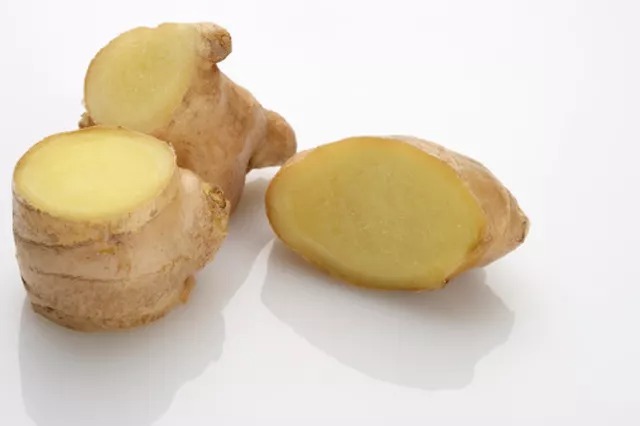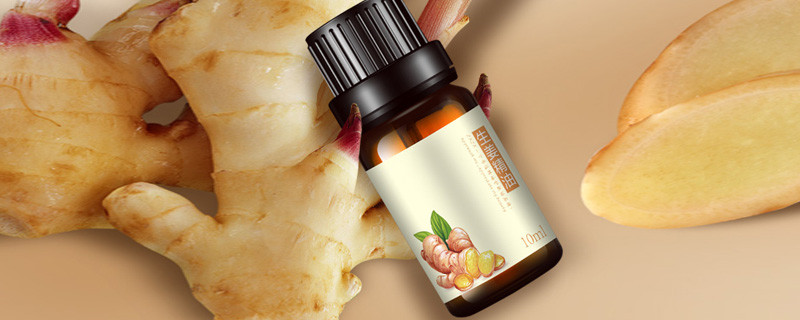

Description of Ginger Essential Oil
Originally produced in Asia, ginger essential oil is one of the earliest flavors of the East to West. It can be found in India, China, Japan, Malaysia, Queensland and Florida. Among them, the ginger of China and India is of pharmacological properties, which is widely sued in cooking and health care.
It has been found that there are more than 100 components in ginger oil. The most important component is sesquiterpene hydrocarbons(50%-66%). The second is oxygenated sesquiterpenes. The rests are monoterpene hydrocarbons and oxygenated monoterpenes.
Studies have found that eucalyptus (l,8-cineole), linalool, citronellylacetate, borneol, geranial and geraniol are the most important aroma component of fresh ginger.
Widely known for adding spice and flavor to many popular dishes, the ginger root has a variety of benefits and uses that reach far beyond the culinary realm. Taken from the underground stem of the ginger plant, Ginger essential oil has warming and soothing properties that make it useful in everyday life. Taken internally, Ginger oil can be used to ease occasional nausea and aid in digestion. With a spicy, fresh aroma, it works well in a variety of diffuser blends. Ginger oil can also substitute for ginger flavoring in your favorite recipes.
Ginger essential oil is usually added to steam and inhaled to help relieve cold or flu symptoms. Ginger essential oil is also used as a massage oil.


Ginger Essential Oil Uses and Benefits
- For centuries, ginger has been an integral ingredient in many recipes, particularly for Asian dishes. When you want to add the sweet, spicy flavor of ginger to a meal, you can simply use Ginger essential oil in the place of whole ginger in your favorite recipes. It is also very useful for baked goods like ginger snaps, banana bread, pies, and more.
- Because of its soothing properties, Ginger may help reduce occasional nausea when taken internally—making it a good essential oil to carry with you on the go. When you experience occasional moments of nausea, you’ll want a bottle of Ginger oil close by. Just take a drop or two in water to help ease your discomfort.* When you take a long car ride or drive along winding roads, diffuse Ginger oil in the car or place a drop of Ginger in the palm of your hand and inhale to enjoy its calming, soothing aroma. You can also apply Ginger oil topically, diluting with Fractionated Coconut Oil, as part of a soothing abdominal massage.
- Ginger essential oil may help reduce bloating and gas when taken internally. This benefit can be helpful before a big workout, especially if you are feeling bloated or uncomfortable. Before working out, take a drop or two with water or in a Veggie Capsule to reduce bloating.
- Have you tried adding Ginger essential oil to your diffuser blends? You can diffuse it in the essential oil diffuser of your choice to help create a balanced, grounded feeling. If you feel your energy lagging in the late afternoon, diffuse this essential oil for an extra emotional boost. For a soothing, tropical blend, try three drops of Wild Orange, two drops of Ylang Ylang, and two drops of Ginger essential oil in your diffuser.
- One common internal use for Ginger essential oil is to aid with digestion. To experience these benefits of Ginger oil, take one to two drops of the oil daily to help with digestion. You can add a few drops to a glass of water, or place one or two drops in a Veggie Capsule.
- To help support healthy joint function and for antioxidant benefits, add one drop of Ginger essential oil to your morning smoothies. To see how you can use other essential oils in juices and smoothies, take a look at a few of our favorite essential oil smoothie recipes.
- The warm, earthy nature of Ginger oil makes it useful for massage. When you want a stimulating or warming massage, dilute Ginger oil with Fractionated Coconut oil and apply topically. Due to its chemical makeup, Ginger is known as a soothing essential oil. Essential oils like Ylang Ylang and Myrrh oil share similar chemical components with Ginger essential oil and are also known for their soothing properties.
